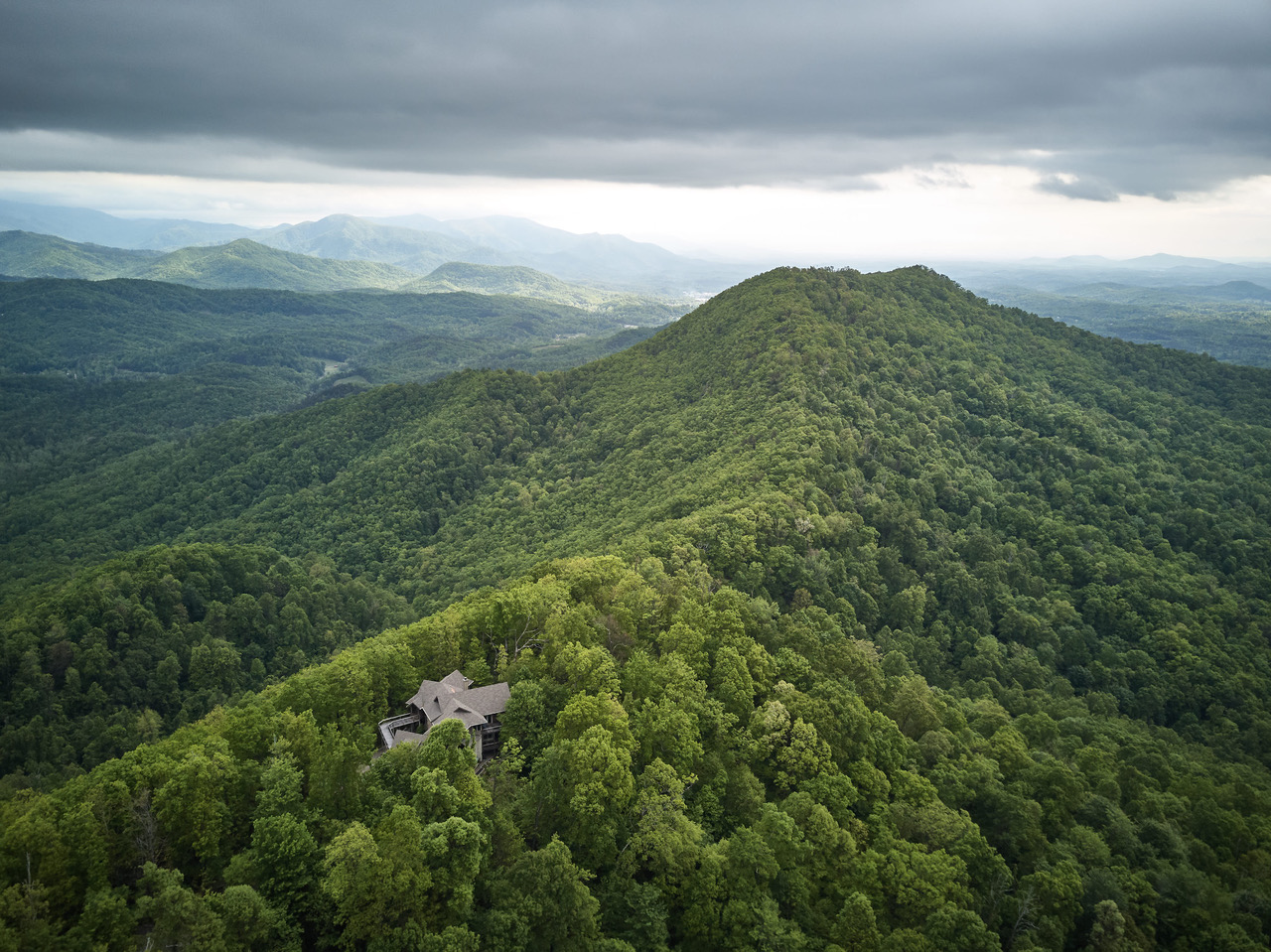Under the current administration, the public lands system isn’t likely to expand anytime soon. Thankfully, land trusts in Appalachia and across the country have been buying up scenic wildlands—often on behalf of the U.S. Forest Service and National Park Service.
Many popular public lands in the Blue Ridge owe their protection to land trusts—including Stringer’s Ridge in Chattanooga, Five Points Recreation Area in Georgia, Hump Mountain along the Appalachian Trail, and Carvins Cove Natural Reserve in Roanoke.
But land protection is like a puzzle with missing pieces.
“You look at a map of a state park or national forest, especially here in the East, and it looks like this continuous green swath of managed land. Well, that’s not really the case,” says Andrew Kota, executive director of the Foothills Conservancy. “There are lots of holes.”
Even one inholding, like the recently protected 50-acre parcel in the Fires Creek watershed of Nantahala National Forest, can disrupt conservation goals and create tension. Private landowners had previously threatened to build a private road through the national forest and cut off access to the beloved Fires Creek Rim Trail. After ten years, the parcel was purchased last year by Mainspring Trust, which will eventually transfer ownership to the Nantahala National Forest. The purchase secures full access to the Fires Creek Rim Trail, squashes any potential reduction of scenic value from development, and ensures protection of Fires Creek, a North Carolina “Outstanding Resource Water.”
For Steve Raper with Georgia Department of Natural Resources (GADNR), working in tandem with land trusts enables states to participate, “in the protection of a lot of land we couldn’t otherwise conserve.”
Land donated or sold to land trusts is considered a charitable gift, making landowners eligible for tax benefits. If landowners sell their property for a lower price, they can reap the difference between fair market and the bargain sale values as a tax deduction.
But land trusts must still come up with the funds to purchase large, valuable tracts of land. Most funds come from foundations and private donors. Competition for funding, however, hasn’t created friction between organizations. Instead, many land trusts in the Blue Ridge are working together.
The Southeast is home to 180 land trusts, with millions of protected acres between them. Altogether, United States land trusts are responsible for protecting an amount of land equivalent to the size of Utah, about 54 million acres.
Nine land trusts in Western North Carolina, including Foothills, coalesced in 2005 under the name Blue Ridge Forever, creating a collective vision for increased protection of the region’s public lands, sensitive natural resources, and working lands. The partnership has identified 26 areas of conservation concern, and within each area of concern, identified the land trusts leading the charge. To date, the partnership has met many of its conservation goals.
For Foothills, contributing to the larger vision, but staying within its self-defined boundary, brings outside support while enabling the organization to keep its roots local.
“We know the people, we know the towns,” Kota explains of Foothills’ region centered around Morganton. “We understand the landscape the best.”
Blue Ridge Forever’s current goal is to protect another 20,000 acres across Western North Carolina by 2020.
Land trusts try to stay non-political, says Kota, because land protection benefits everyone. But the funding sources for land protection are often politicized. Large funding sources, like the Farm Bill and Land and Water Conservation Fund, are especially important for land trusts purchasing property. The Trump Administration and Congress have slashed funding for the Land and Water Conservation Fund in recent years.
The five states with the fastest population growth are all in the South: North Carolina, South Carolina, Tennessee, Florida, and Georgia. And 71% of American land remains privately owned. Much of that land has conservation value, representing an opportunity for land trusts to protect land in perpetuity.
“Forever is a long time,” says David Perry, executive director of Blue Ridge Land Conservancy in Roanoke, Va., but landowners, “don’t want to see the land become a neighborhood named after the trees that used to be here.”
The value of private conservation land is sometimes harder to quantify for the public. It’s likely you won’t see private conservation land on a trail map, but its protection enhances wildlife habitat, water quality, scenic views, and even spurs economic growth.
“Conserving land is improving the economy,” says Perry. “Farms, wineries, bed and breakfasts, agritourism, recreation, and other commercial activity can take place and is complementary to conservation value.”
Land trusts have, for the most part, enjoyed stable support from Washington and from leaders within their respective states. That’s remarkable considering the contentious political scene that has public lands and environment protection in its crosshairs.
Kota and Perry agree that land trusts offer something for everyone on the political spectrum: recreation opportunities, critical ecosystem services, agricultural protection, heritage preservation, tax breaks (which are especially important for farmers and ranchers), and voluntary, local-level decision making.
But a new controversy threatens to tarnish their reputation. Around the turn of the New Year, Fortune Magazine published “The Billion Dollar Loophole,” shining the spotlight on a loophole in conservation tax laws enabling some investors to cash in on conservation.
The loophole revolves around arrangements called syndicated deals. Investors buy property with highly inflated appraisals, and then use conservation easements to receive a sizeable tax deduction.
To many land trusts and other conservation groups, these deals are a threat to their cause. They may represent a small number of transactions, says Perry, but they equate to “egregious abuses,” and most importantly, “the kinds of things that can sour an entire land conservation movement.”
A bill to limit syndicated deals was introduced last November. The Land Trust Alliance, in representation of 1,000-plus land trusts, supports the bill.








